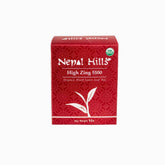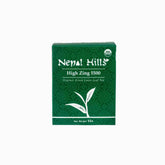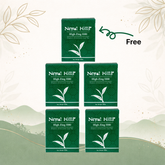Fascinating Facts About Nepal’s Tea Industry
Nepal is a small landlocked country nestled in the Himalayas. It has a new but a rich and vibrant tea culture. The tea industry in Nepal dates back to the mid-19th century when the first tea bushes were planted in Ilam district which is the eastern part of the country. The unique geographical conditions of Nepal, with its high altitude, south facing slopes and favorable climate all of these contribute to the distinct flavor and aroma of Nepali tea.
Why Are Artisanal Tea Producers Different Than Estate Teas
Artisanal tea producers and estate teas operate on fundamentally different principles. Large tea estates often exploit small farmers by paying them low wages for their labor and their land’s produce. In contrast, artisanal tea producers, like those in Illam Nepal, are often small-scale farmers who own their land and control the entire tea production process, from planting and harvesting to processing and packaging. This not only ensures a fair income for the farmers but also results in a higher quality product as the farmers take great pride in their work.
Small Farmers - Owners Not Labourers
In Nepal, the tea industry is undergoing a small farmer revolution. These resilient individuals are not needy and hungry people but owners of their land and their destiny. They are transforming the tea industry by producing high-quality artisanal teas, which are gaining recognition and appreciation worldwide.
Breaking the Misinformation
Unfortunately, some companies politicize the tea industry and take advantage of customers by spreading misinformation. They often label their teas as ‘fair trade’ or ‘organic’ without meeting the necessary standards. As consumers, it’s essential to research and choose companies that are transparent about their sourcing and production methods.
FAQs
-
What is the history of the Nepali tea industry?
- The Nepali tea industry began in the mid-19th century when the first tea bushes were planted in Ilam.
-
How does the geographical condition of Nepal affect its tea?
- Nepal’s high altitude, fertile soil, and favorable climate contribute to the distinct flavor and aroma of its tea.
-
What is the difference between artisanal tea producers and estate teas?
- Artisanal tea producers are small-scale farmers who own their land and control the entire tea production process, while estate teas are often produced by large estates that exploit small farmers.
-
What is the small farmer revolution in the Nepali tea industry?
- The small farmer revolution refers to the transformation of the tea industry by small-scale farmers who are producing high-quality artisanal teas.
-
How do some companies take advantage of customers in the tea industry?
- Some companies spread misinformation by claiming that they are set out to rescue farmers but in fact they do no better work than general tea traders.
-
What is the importance of transparency in the tea industry?
- Transparency in the tea industry is crucial as it allows consumers to make informed choices about the teas they purchase, ensuring they support companies that treat their workers fairly and respect the environment.
-
What makes Nepali tea unique?
- Nepali tea is unique due to its distinct flavor and aroma, which is a result of the country’s unique geographical conditions.
-
What is the role of small farmers in the Nepali tea industry?
- Small farmers in Nepal are transforming the tea industry by producing high-quality artisanal teas and ensuring a fair income for themselves.
-
How can consumers ensure they are buying genuinely fair trade and organic tea?
- Consumers can ensure they are buying genuinely fair trade and organic tea by researching and choosing companies that are transparent about their sourcing and production methods.
-
What is the future of the Nepali tea industry?
- The future of the Nepali tea industry looks promising with the small farmer revolution, as they continue to produce high-quality artisanal teas that are gaining recognition worldwide.






